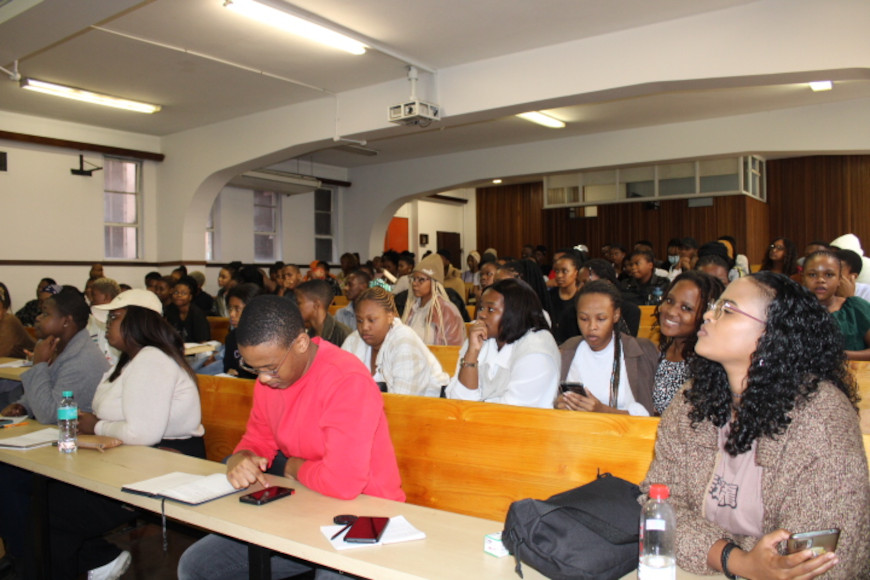Durban University of Technology (DUT) Journalism recently hosted Africa Check to train their students and lecturers in fact-checking which is a critical skill for journalists. Africa Check exists to promote accuracy in public debate and the media in Africa; with a broader goal to encourage others to check claims themselves.
The one-day training enlightened students on various topics, these included on how and why false information spreads, being a responsible social media user, tips for identifying false information, using online tools to verify the origin of images and videos and finding credible information online.
Africa Check’s head of education and training, Carina van Wyk, who conducted the training, explained that the organisation aims to curb the spread of misinformation by fostering the practice of fact-checking across Africa. The training at DUT Journalism is part of a two-year project, which includes training South African journalism students and lecturers in fact-checking.
“We need to make sure the public has access to accurate information. That is why we equip future journalists with fact-checking skills. We also strongly focus on equipping high school learners with the necessary skills to identify and stop the spread of misinformation so that they become responsible media consumers,” said van Wyk.
She added that identifying false information is often simply about looking at information with a critical eye and asking the right questions instead of simply sharing it.During the training, Van Wyk emphasised that a journalist’s credibility is key, and they are responsible for providing their audience with accurate information to make well-informed decisions.
“The over abundance of information we are faced with online and offline makes it difficult to distinguish between what is true and what is not. Your audience trusts you to help them make sense of this information and provide accurate news,” she explained to the students.
DUT Journalism third-year student who attended the training, Luyanda Danca, said the training was informative. He said the way he now looks at information he sees online has changed. “I am now equipped with so many skills. It was a much-needed session,” he said.
DUT Journalism third-year student, Nokukhanya Sithole, said she was impressed by the number of resources available online to authenticate whatever information she receives.
“The most interesting part was on emotions. If you are reading or watching something that evokes fear, anger, or extreme happiness, you should tread carefully and question it. I also never knew about the reverse image search; that was great to learn,” she said.
Van Wyk commended students’ interest in fact-checking and for attending the training.
“I enjoyed every moment. The students were interactive and eager to learn and apply their new skills,” she said.
Africa Check is also developing training material that lecturers and educators can use in the classroom. They have trained more than 9 000 people across the continent, including journalists, university students, teachers, high school learners and the public, since 2015.
Pictured: DUT Journalism students learning all about fact-checking at the workshop. (Picture Credit: Minenhle Zikhali, Journalism student).
Sphelele Ngubane

